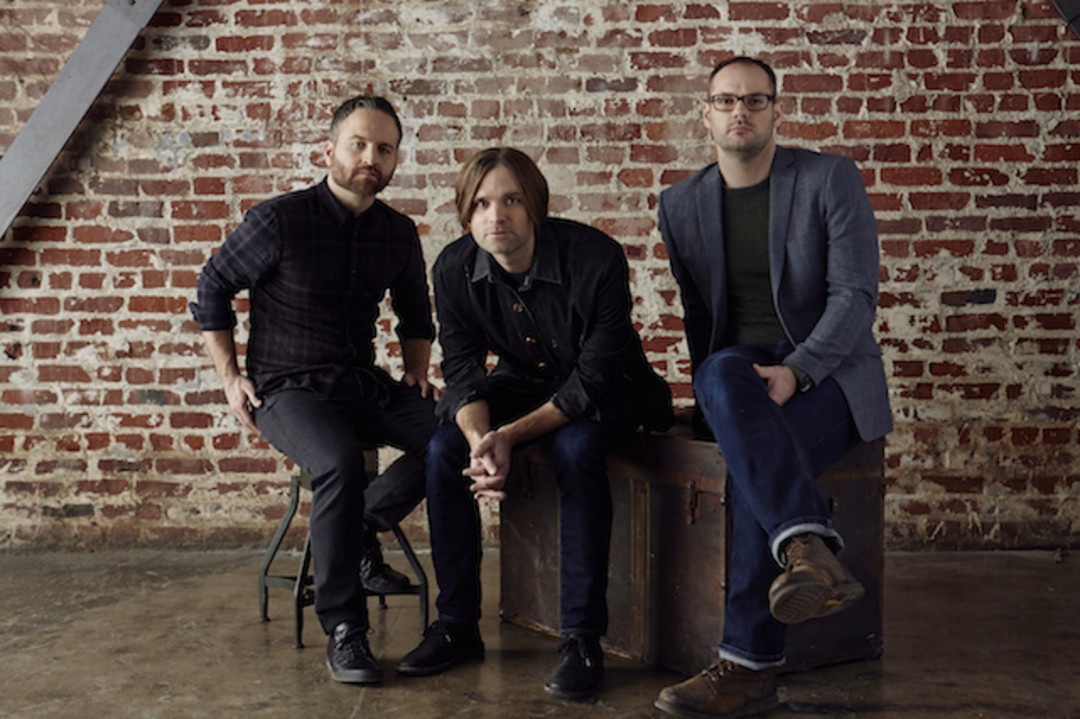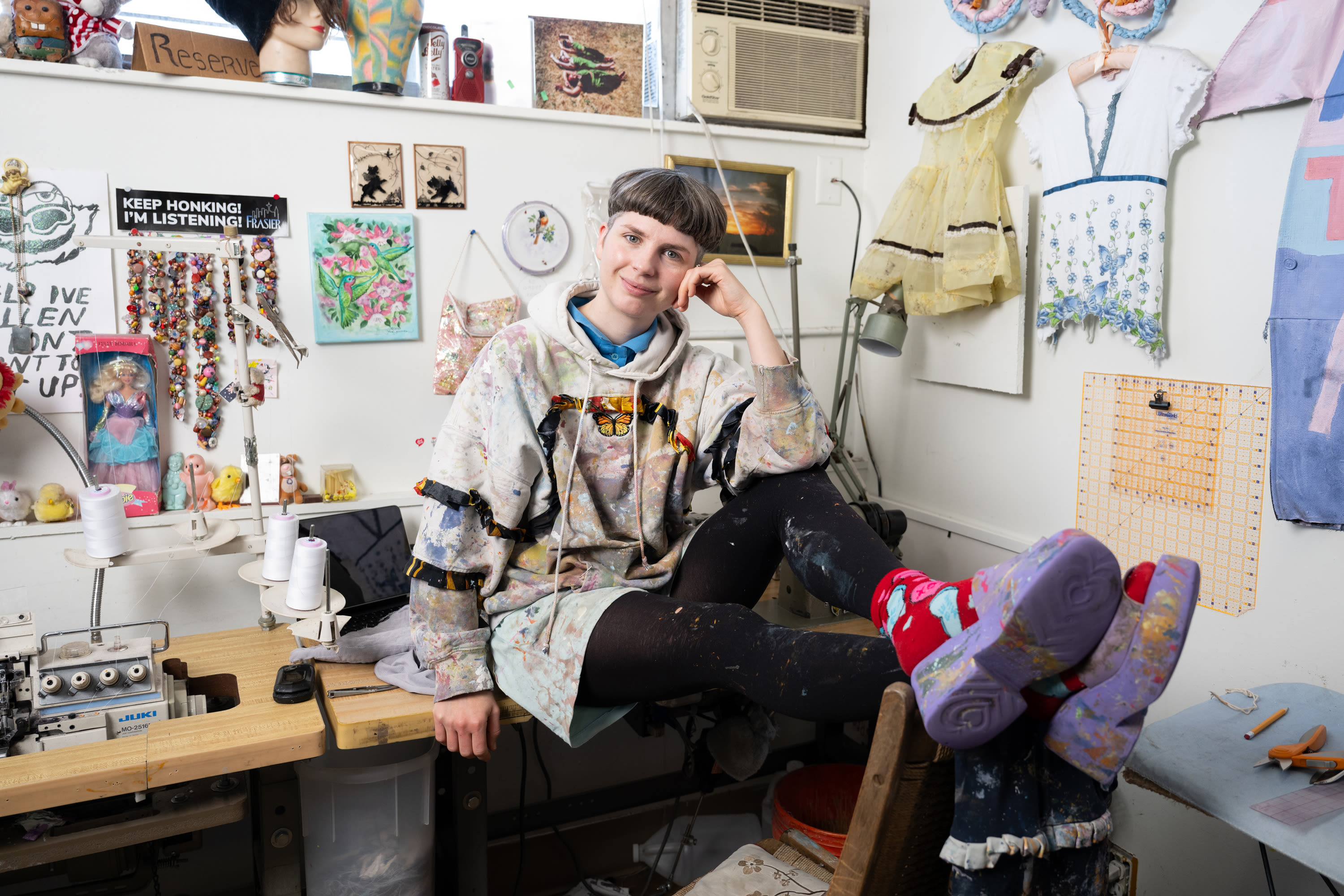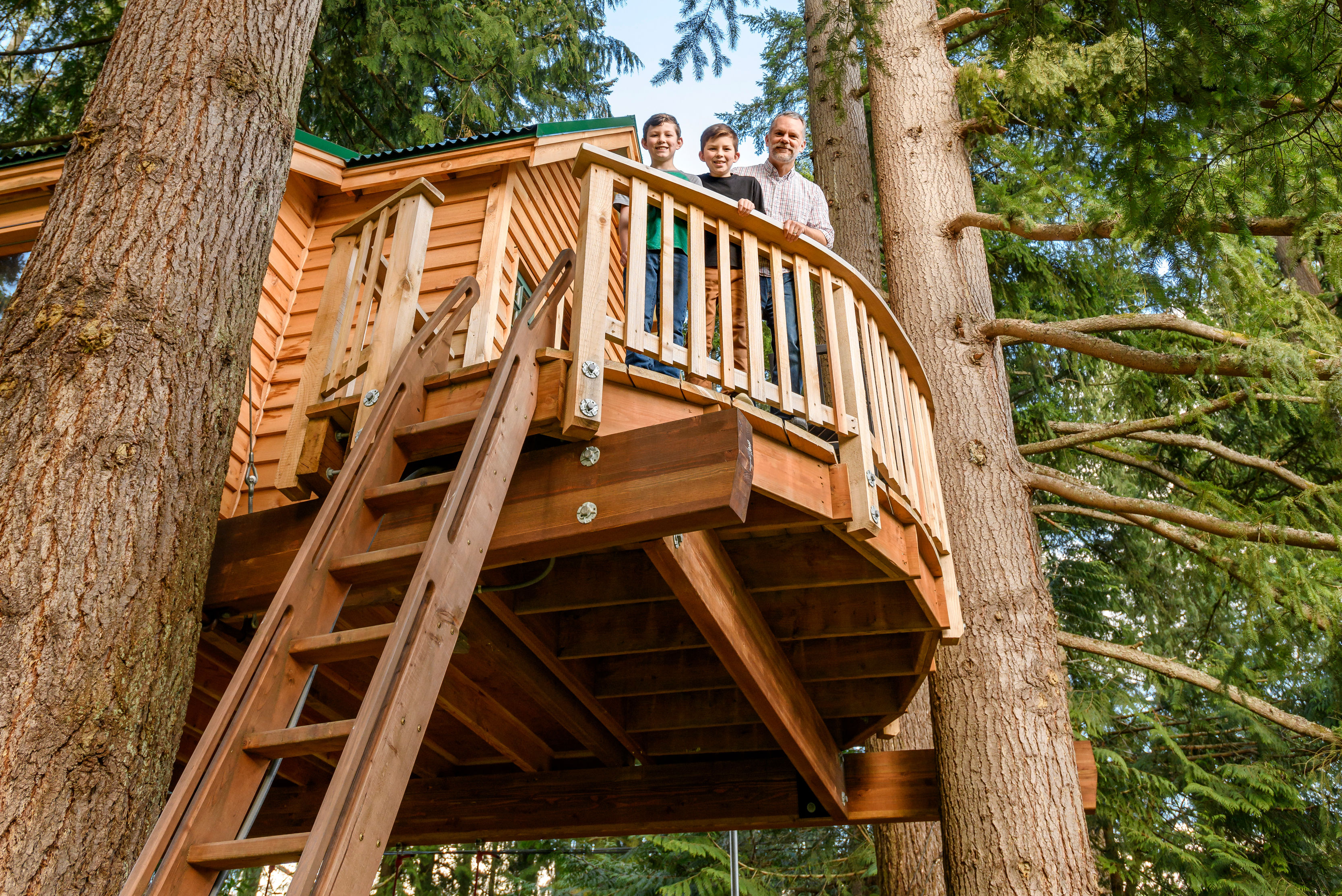A Fiendish Conversation with Death Cab for Cutie's Nick Harmer

Nick Harmer (left) and his Death Cab for Cutie bretheren are ready to hit the road in support of Kintsugi.
All good things must come to an end, but what comes next? When founding guitarist and producer Chris Walla decided to leave Death Cab for Cutie last year, the rest of the band had to figure out how to soldier forward. Before Walla left, Death Cab had already finished recording its eight studio album, which was subsequently named Kintsugi after the Japanese practice of fixing broken pottery cracks with gold to make the repair an artful part of the piece’s history (call me crazy, but that might be a metaphor). Kintsugi arrives in stores tomorrow (March 31), and the band will spend most of the year touring before finally returning home to play the Paramount Theatre in early October.
For our latest Fiendish Conversation, we chatted with Death Cab for Cutie bassist Nick Harmer about Kintsugi's creation, bringing in an outside producer for the first time, and adding layers of depth to the band's live sound.
What made you guys decide to bring in an outside producer for the first time as opposed to just having Chris Walla handle it internally again?
We had started recording with Chris in fall of 2013, here in Seattle. We got about two weeks or so into that process and we all came into the studio one day, and Chris was like, “You know what? I don’t think I’m the right person to make this album.” Not because things weren’t going well or we because weren’t getting meaningful work done, it was really just that he had a sense that our history together, working together in that environment. At times that can be the best thing about having our guitar player produce our records, and at times can really be something that works against us. In this case, I think he sensed that our history was going to start to work against us with this material and we all just really wanted to find somebody that had a little bit more of an objective outside perspective on, not only our whole career, but on each of these individual songs.
We all started brainstorming ideas and producer names, people that had made albums we had enjoyed over the years and people we had always wanted to work with and things like that. That list wasn’t too crazy long and just by schedules alone, it got smaller. Rich Costey was pretty close to the top of Chris’s list and, for me, I always felt like in order for this to be a successful handoff to a new producer, ultimately Chris is going to have to be the most excited about working with someone new, just in terms of trust and being able to hand those reigns over. We didn’t want to end up in a situation where Chris started backseat producing something or where there was too much push and pull between aesthetic direction or whatever. It was really important early on that Chris was excited and really trusting with whoever was going to take that role in the band. He lead us to Rich, and then it was just took a conversation with Rich for the rest of us to realize how much electricity and chemistry there was between all of us. I definitely give all of the credit in the world to Chris for bringing Rich into the conversation and then certainly making that exchange happen.
It was really strange for a while. Taking meetings with different producers… it was kind of like online dating or something, where you meet up with someone and sit down, and you have to determine over the course of a lunch if there’s chemistry or not. (Laughs) It was a little strange for a little bit but I’m really thankful that we met Rich when we did because he was obviously the guy.
Yeah, it’s kind of like online dating… except your ex-girlfriend who you’re still really good friends with is sitting in on all of the dates.
Yeah, I guess I didn’t even think about that. (Laughs) Since you said it, there’s another layer of that, too.
Do you have a favorite moment on Kintsugi?
A particular standout moment for me is the first track on the album, “No Room in Frame.” I would say of all of the songs on the album, that song probably took the longest to end up in the place that it’s at on the album. From the demo form—which was just Ben and an acoustic guitar—until the version you hear on the album, we tried so many different versions of it and tried so many different things. It shifted and morphed and changed for a really long time before we stumbled on the thread that lead us to the final form. But I remember such a sense of accomplishment and satisfaction when we finally could step back and listen to everything we had done and hear it as you hear it now. It just felt like a real sense of accomplishment at that point, that we’re like, “Ahhh, we did it. We made it!” (Laughs) There was just this great moment of, “Yes, this song is going to make the album and people will hear these lyrics,” which I think are some of Ben’s best lyrics. Not probably ever, I don’t to say such a big statement like that, but certainly in this album there are some standout lines in that song that I really love.
One of the things that stands out to me on Kintsugi is the density of the music. On tracks like "Little Wanderer," you guys were able to go to some moodier places that feel weighty without ever feeling heavy in a burdensome way.
That’s something that we were really working hard for in the studio. There’s such a weight and gravity to Ben’s lyrics throughout the whole album. We really wanted musically to reinforce that without going over the top. You can add too much weight musically, too much weight lyrically, and suddenly it’s this heavy, overwrought thing that is not something you feel drawn to; you are kind of intimidated by it. We were always trying to strike a balance between the gravity of the lyrics and the gravity of the music and making those two work the best together that they possibly could. That’s why a song like “No Room In Frame” took as long as it did to reach the point that it is on the album. We really wanted to find that right mood and texture and tone to set up the lyrics that Ben had written.
How has the transition gone since Chris left and was replaced by Dave Depper (on keys) and Zac Rae (on guitar)? How has having two new guys sonically opened up things for Death Cab?
For a number of years, we’ve been tossing around the idea of bringing out a fifth person to tour with and to really try and open up our ability to capture all of the textures and little melodies that happen in songs that we haven’t been able to do. Just adding a fifth person alone on stage has really opened up the range of what we’re able to present live in a way we’ve never been able to do. That in itself is completely satisfying and really, really exciting for all of us. But then also to have two new people in the band, and have their energy and input and their musical minds working on the material with us, has just been a real shot in the arm for us. It’s really reinvigorated a lot of the back catalogue and it’s certainly made us that much more excited about sharing the new material, which is pretty sonically dense at times.
Even when we were recording it we were thinking, “Oh man, how are we even going to begin to approach some of this stuff live?” And with Zac and Dave’s talents it’s really been... I wouldn’t say effortless—since we certainly worked at putting all of the material together and making the new stuff sit well with the old stuff—but it has come together really quickly and in a way that just felt really natural. That, in turn, has just increased our level of excitement and hopes for how things are going to go for this tour cycle.
Yeah, I was at the first show with the new guys at the Crocodile, and even in terms of old material the change was noticeable. On a like song “Title and Registration,” you were able to play all of the bridge parts that are on the recording instead of Chris having to choose between playing the keyboard part or the guitar part.
Yeah, exactly. There are so many moments like that throughout the whole back catalogue of material that suddenly just has this depth to it live. Not that we have been frustrated that we haven’t been able to do it live, Death Cab live has just always been a slightly different experience than Death Cab on the album. We were okay with those being two different experiences with the band. Now that gap between recorded band and live band is a lot smaller with just having a fifth person on stage. It’s really changed that dynamic. And then in songs where there aren’t parts, having Zac or Dave write new ones or come up with something to do to fill it out… it’s really amazing. It’s such a revelation for us.
Death Cab for Cutie
Oct 3–5, Paramount Theatre, $41




